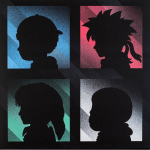Into all things retro? If you are, I imagine you’ve already heard of and played Retro Game Challenge, as it received numerous positive reviews from the gaming press. When I played through the game, I was particularly impressed with the 8-bit music, and started wondering if it was truly written using the limitations of the Famicom.
Well, my question has been answered. We’ve been able to speak with Retro Game Challenge composer Koji Yamada about his work on the title. We ask him what it was like writing a soundtrack to a retro game, and find out that yes, he did in fact write the music using the limitations of the Famicom. It’s definitely an interesting discussion about retro games and music, and it’s the first time to my knowledge that Koji Yamada has taken part in an interview in English.
Hit the jump to hear what Koji Yamada has to say about the game music of yore!
OSV: Yamada-san, thanks for taking the time to speak with us today. We have enjoyed the classic Famicom music and sounds featured in Retro Game Challenge, and were hoping you could tell us how you came to work on this game?
Yamada: One of the producers at Bandai Namco Games who I’ve known for a long time said, “We’re planning to create a retro-type game, do you know anybody good that can create the music for this title?” I enthusiastically said, “I would love to work on it!,” and that’s how got the part. (^o^)
OSV: What was your overall approach to the game’s sound? Given the different genres of games featured, did you have an overall idea of how you wanted the game to sound?
Yamada: Since Famicom (NES) type sounds are popular amongst all game music, I felt a lot of pressure to make it right. I got together with the producer as well as the developer, indies zero, on numerous occasions to see what they had in mind before I took the first step to tackle this project. As for the overall idea, I placed a task on myself to create this game only with Famicom sound specs. With all the advanced technologies we have today I really needed to think in a different way, but it was a great challenge and I was highly motivated since I was enjoying the project. Above all, I wanted to pay respect to all the great composers in the Famicom era and pay homage to their work.
OSV: What was your favorite game writing music for in Retro Game Challenge? We loved the ninja-inspired themes of Haggleman, but also enjoyed the epic melodies of Guardia Quest. Which is your favorite, and why? Was it difficult creating music for an RPG title?
Yamada: Thank you! Haggleman is my favorite piece as well. I especially like the music you hear at the results screen. It’s a really short piece, but I also arranged it with a different twist and used it in a different scene for Haggleman 2. The reason I like this piece is because I think I was able to give off a sense of relief that comes with victory as well as a melancholy melody that describes the Haggleman story.
I worked on Guadia Quest towards the end of the project. By that time I was getting used to creating retro-type music and had a lot of ideas on what to do so the composing went very smoothly.
OSV: We’re big fans of classic gaming music. We’ve been told that you were responsible for the music for some old PC titles. Although you’ve never had experience writing for the Famicom, we’re wondering what it was like revisting the limitations of these old systems after having access to CD-quality music in games or so long?
Yamada: I first started to create music for this one Japanese PC (NEC9801-PC) game. PC back then only had FM oscillator and PSG source, so like the Famicom, we had to create music with a very specific limitation on the hardware. After that I was able to work on the early GameBoy games which is close to what the Famicom specs were. I really utilized the knowledge I gained back then so going into this project I didn’t have any hesitations, I was more filled with joy as I viewed it as an opportunity to work on something that I really never got to finish.
OSV: How accurately does the music and sound featured in Retro Game Challenge represent what could actually be with the Famicom? Does the soundtrack feature only 4 channels, with pulse waves, square wave, and noise channels? Even if this wasn’t the case, was it challenging writing a similar style?
Yamada: It’s true that I created the music with only 3 channels + noise channel. Since your site’s audience seems to know a lot about Famicom sounds I’ll skip the detailed explanations, but the number of tones is the same as the Famicom. However, for the sound generator we are using the PSG and the noise sound in the DS as is. Depending on the music we were utilizing, the Aiff data triangular wav had more Famicom-type retro feel to it as well. Also, not only the music but the dog bark and the princess’s scream were also created using the PSG. I was really amazed at how much flexibility the PSG source had.
OSV: What tools did you use to write the music? Did you use some kind of emulation software, or something else?
Yamada: I didn’t use emulation software for this project. From the rough melody creation I only used the Nintendo development hardware. Other than that I used a MIDI sequencer and my favorite music software called STUDIO VISION by OPCODE Systems.
OSV: We really enjoyed the retro sound effects featured in Retro Game Challenge. Please tell us how you created these, and what your inspiration was? I was constantly reminded of many of my favorite Famicom games when I heard the sound effects.
Yamada: Thank you so much for the compliments. All the inspiration for this title came from the numerous meetings we had with the producer and staff members. It really starts off by people verbally making the sound they think fits like “Whoosh” or “Ka-thunk.” I think the reason why so many users accepted and enjoy the music and sound is because the direction that came out in those meetings was spot on. And since I used the PSG, which is close to the sound source of what they used back then, it was inevitable that it would sound similar. So my challenge was to use my skills and ideas to make it sound retro but also provide a rich atmosphere.
OSV: Is there any chance that we would see a soundtrack release for RGC, or perhaps an arrange album? I think the team at SuperSweep would be perfect for a project like this! How many minutes of music were written for the game?
Yamada: Any decisions on the soundtrack will be up to the producer so I really don’t know anything about it, but I haven’t heard any talks at this point. It would be great if it does come out though. Regarding the length of the music, most songs are loops so even I’m not sure what the total time will be, but I know all the songs will not fit onto one CD.
OSV: You’ve had a long history of making music for games. However, there isn’t a whole lot of information available about your work in English. I was hoping you could tell us about your background, including your musical background, important works, and what you are doing today.
Yamada: I’ve only been working on game music for around 20 years, so I’m still an amateur (^o^;)
I first got my foot in the music business when I joined a game company called Artdink in 1989 which specialized in simulation games. I think some of the titles have been ported to the IBM-PC and been sold in the US in the past.
In 1992 I moved to BEC and have been working here ever since. I think I’ve created around 2,000 pieces so far. Below is the BEC website URL with all the titles we created and I worked on almost all of them. In the line-up we have DIGIMON and GUNDAM, both titles that have been released in the US, so if anybody recognizes those titles or others, I’m greatly honored.
http://www.bec.co.jp/title.php (The website is in Japanese only though. Sorry!)
OSV: Regarding the team at BEC, are you the only composer on staff? What other sorts of things is the team responsible for?
Yamada: BEC is part of Bandai Namco Holdings. We have been developing games from the beginning and we have about 120 employees. We handle everything from development planning and CG movies to music composition. I belong in the sound creation division which consists of three composers and one sound effects person so four people all together.
OSV: Do you compose chip music outside of the gaming industry? Is there a website where you can learn more about your work?
Yamada: Unfortunately, I haven’t had the chance to create music outside of gaming yet. On Bandai Namco’s Japan website they have a section where they list their games and they have sample music you can hear. That’s the only place I can guide you to on the web.
OSV: Is there anything you want to say to fans of the old Famicom system in the United States? Any comments as to how this music makes you feel and how it should make us feel?
Yamada: I’ve only created music for work and I haven’t had a chance to arrange any of the pieces I created before. In my job, once the piece leaves my hands my work is done. But I think music is a form of art that people can arrange and/or customize as they listen and come up with their own interpretation. It’s truly something that the creator and listener can both enjoy. If there’s any odd person that is fond of my creation, I would love for them to evolve Retro Game Challenge with their skills. I can then become a listener of my own piece that’s interpreted in a different way.
OSV: Can you tell us what you and BEC will be working on next? We’re looking forward to your next game project.
Yamada: I’m sorry but all of our projects right now can not be revealed at this time, but I can tell you that I finished working on the Japanese version of Retro Game Challenge 2 together with indies zero again. I would love for this title to make it over to the States as well. I really hope the original Retro Game Challenge will do well! v(^o^)y
OSV: Yamada-san, thank you for your time, and congratulations on your work on Retro Game Challenge.
Yamada: Thank you for this opportunity.










































[…] Full interview here […]
[…] Full interview here […]